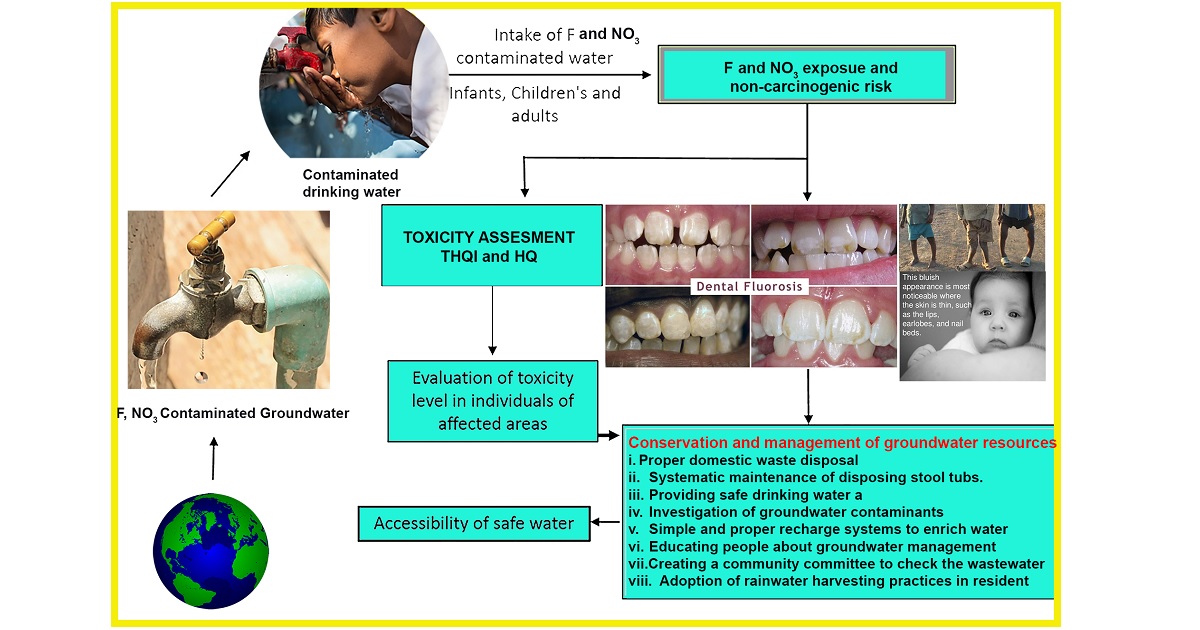Water Quality Control and Human Health Risk Assessment
A special issue of Water (ISSN 2073-4441). This special issue belongs to the section "Water and One Health".
Deadline for manuscript submissions: closed (31 December 2023) | Viewed by 1655

Special Issue Editors
Interests: water quality; drinking water pollution; new pollutant; disinfection by-product; disinfectant
Interests: hydrochemistry; environmental geochemistry; human health risk assessment; RS and GIS; geochemical modelling; submarine groundwater discharge
Special Issues, Collections and Topics in MDPI journals
Special Issue Information
Dear Colleagues,
The population of any region should be provided with data about the nature of groundwater, its conservation and management, and the polluting factors affecting its suitability in human body. With this aim, this Special Issue aims to evaluate the water quality impact on human health risk in terms of physical, chemical and biological indices. Drinking water quality index and health hazard valuation (THQI—by consuming physical, chemical and biological materials) can help to infer the quality of groundwater for drinking and the associated health risks. In the present Special Issue, we aim to publish coastal terrain and hard rock human health risk assesment manuscripts. This Special Issue will attempt to bring out a comprehensive picture on the status of water issues in terms of the geographic and temporal dimensions and analyse the range of technological and management approaches which can be applied both globally and regionally.
Themes:
- Groundwater resource estimation and global statistics;
- Groundwater quality and control;
- Human health impact and assessment;
- Risk assessment on a global scale (fluoride, nitrate, heavy metals, etc.);
- Submarine groundwater discharge;
- Groundwater governance and policies;
- Radon and health impact and remediation;
- Technological and frugal solutions for water quality purifications.
Dr. Bixiong Ye
Dr. Selvam Sekar
Dr. Amir Mohammadi
Guest Editors
Manuscript Submission Information
Manuscripts should be submitted online at www.mdpi.com by registering and logging in to this website. Once you are registered, click here to go to the submission form. Manuscripts can be submitted until the deadline. All submissions that pass pre-check are peer-reviewed. Accepted papers will be published continuously in the journal (as soon as accepted) and will be listed together on the special issue website. Research articles, review articles as well as short communications are invited. For planned papers, a title and short abstract (about 100 words) can be sent to the Editorial Office for announcement on this website.
Submitted manuscripts should not have been published previously, nor be under consideration for publication elsewhere (except conference proceedings papers). All manuscripts are thoroughly refereed through a single-blind peer-review process. A guide for authors and other relevant information for submission of manuscripts is available on the Instructions for Authors page. Water is an international peer-reviewed open access semimonthly journal published by MDPI.
Please visit the Instructions for Authors page before submitting a manuscript. The Article Processing Charge (APC) for publication in this open access journal is 2600 CHF (Swiss Francs). Submitted papers should be well formatted and use good English. Authors may use MDPI's English editing service prior to publication or during author revisions.
Keywords
- hydrochemistry
- environmental geochemistry
- human health risk assessment
Benefits of Publishing in a Special Issue
- Ease of navigation: Grouping papers by topic helps scholars navigate broad scope journals more efficiently.
- Greater discoverability: Special Issues support the reach and impact of scientific research. Articles in Special Issues are more discoverable and cited more frequently.
- Expansion of research network: Special Issues facilitate connections among authors, fostering scientific collaborations.
- External promotion: Articles in Special Issues are often promoted through the journal's social media, increasing their visibility.
- e-Book format: Special Issues with more than 10 articles can be published as dedicated e-books, ensuring wide and rapid dissemination.
Further information on MDPI's Special Issue polices can be found here.







